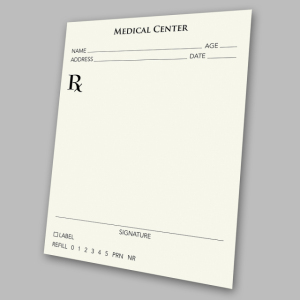by
Brendon Nafziger, DOTmed News Associate Editor | November 23, 2009

Down syndrome
may one day
be treated medically
The rapid age-related decline of cognitive function that characterizes Down syndrome could one day be managed like diabetes, if a new study holds up.
In an article published recently in Science Translational Medicine, researchers found they could reverse cognitive deficits in mice with a Down syndrome-like condition by replenishing a brain chemical known as norepinephrine.
Although people with Down syndrome, a hereditary disorder caused by an extra, or third, 21st chromosome, have many cognitive deficits that show early in life, one of the main problems is forming contextual memories: spooling together both sensory information and contextual cues to glean information from novel environments.



Ad Statistics
Times Displayed: 367084
Times Visited: 7180 Quality remanufactured Certified Centrifuges at Great prices! Fully warranted and backed by a company you can trust! Call or click for a free quote today! www.Centrifugestore.com 800-457-7576
The researchers speculate this is because the hippocampus, which integrates the brain's "GPS-type data" with information coming from multiple sensors collected from the environment, doesn't receive the norepinephrine it needs to code the memories. The reason lies with its supplier, the locus coeruleus, a tiny region of the brain some 2,000 cells across that is supposed to keep the hippocampus stocked with the signaling chemical, but which in Down syndrome, it appears, has defects.
This constant lack of norepinephrine could also be behind one of the tragedies of Down syndrome: the blistering speed of mental decay. By 40, many people with the condition show symptoms similar to Alzheimer's dementia.
"Although it's difficult to measure dementia in a person already with cognitive problems," says Ahmad Salehi, M.D., Ph.D., lead author of the study and researcher at the Veterans Affairs Palo Alto Health Care System in Palo Alto, Calif., "there are studies where they try to correct for that." In those studies, Dr. Salehi says nearly 60 percent of folks with Down syndrome in their 40s could also be diagnosed with Alzheimer's. In fact, the two disorders appear to be linked; the 21st chromosome houses the gene APP, which is associated with Alzheimer's risks.
Helping the mice
But, says Dr. Salehi, there might be some hope, and it springs from some very basic learning improvements in mice.
In his study, conducted when he was still a researcher at Stanford University, first Dr. Salehi and his team created mice with what is basically a murine version of Down syndrome: they made them with trisomy 16, carrying an extra fragment of the 16th chromosome. (In mice, the relevant genes cluster on the 16th, not the 21st chromosome, and they can only possess an extra fragment, not a full third chromosome, as the resulting effects would kill them.)

